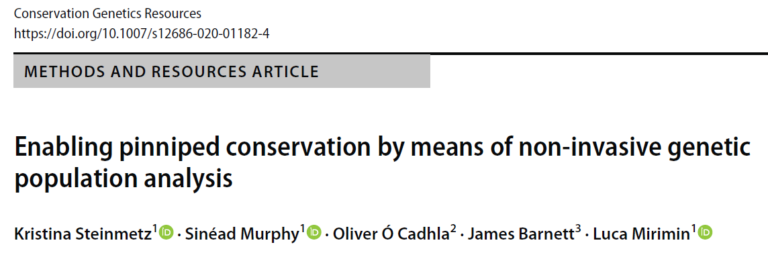Check out our new paper in the journal Conservation Genetics Resources!
Genetic studies of elusive species such as pinnipeds are often confined by the number of samples available which may result in knowledge gaps due to a lack of representative data. Hence, this study evaluated the applicability of various protocols for the collection and processing of samples from grey and harbour seals in order to develop non-invasive sampling protocols suitable for population genetic analyses of pinnipeds so that representative sample size may be reached for conservation studies of these species. The performance of different protocols was measured following successful DNA isolation, molecular sex identification and sequencing of a mitochondrial DNA fragment (control region).
It was shown that plucked hair, urine and buccal swabs were most effective for collection from individuals in captivity, whereas the collection of scats was most appropriate for wild populations. It was further shown that DNA from scats exposed to ambient conditions for up to four weeks is viable for genetic analyses.
By assessing the suitability of various sample types, this research provides important data enabling effective design of future sampling strategies as well as an increase in samples available for genetic analysis of pinnipeds.
This research is funded by the Galway-Mayo Institute of Technology, the Irish National Parks and Wildlife Service (Grant REF SPU G07-2017) and the Irish Department of Housing, Local Government and Heritage.
Read more about the Seal Management and Conservation project here.

